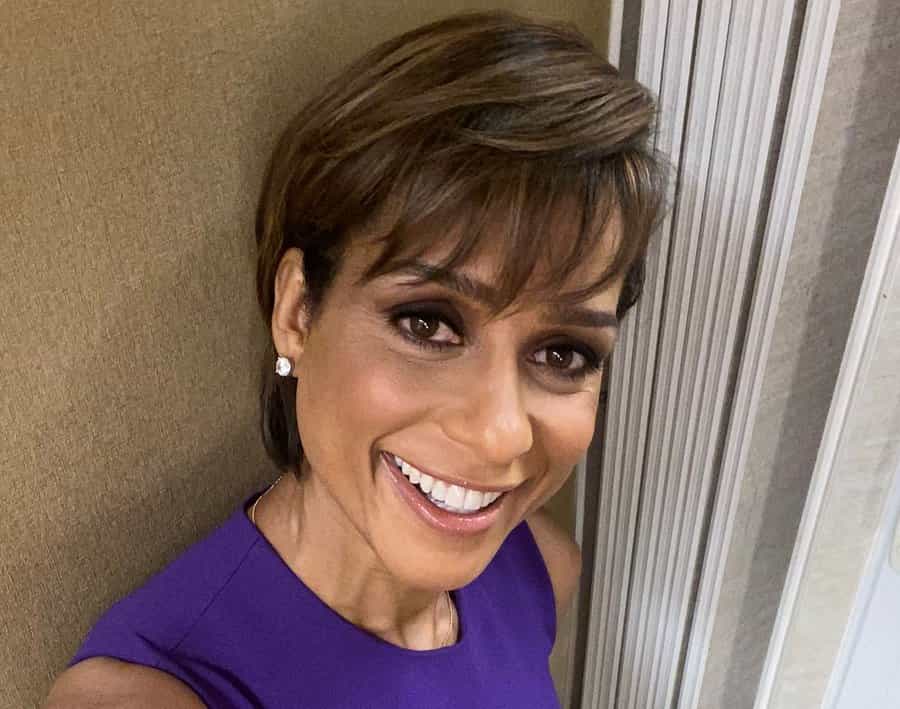The ethnicity of Sade Baderinwa has captivated the interest of many, especially those who admire her contributions to the entertainment industry. As a leading figure in content creation, Sade's cultural background not only enriches her personal identity but also significantly influences her creative work. Understanding her roots provides a window into the fascinating cultural diversity that defines modern Africa.
Beyond her professional accomplishments, Sade Baderinwa's heritage plays an essential role in shaping who she is. Her origins are deeply connected to the vibrant traditions and storied history of Nigeria, making her a symbol of pride for people across the African diaspora. This article aims to explore her ethnic background while shedding light on the cultural significance of her ancestry.
In this comprehensive guide, we will examine Sade Baderinwa's ethnicity in detail, analyzing how it shapes her identity and impacts her career. Whether you are an ardent fan or simply curious about her background, this article offers an in-depth exploration of her cultural roots and the broader context of Nigerian ethnic diversity.
Read also:Hank Kunneman Age
Table of Contents
- Biography
- Sade Baderinwa's Ethnicity
- Cultural Heritage
- Nigerian Ethnic Diversity
- Family Roots and Upbringing
- Impact on Career
- Traditions and Customs
- Languages Spoken
- Food Culture
- Conclusion
Biography
Sade Baderinwa has carved out a remarkable niche for herself as a creative powerhouse in the world of entertainment. Her journey from Nigeria to becoming a globally recognized content creator is a testament to her dedication and resilience. Below is a snapshot of her life:
Data Profile
| Full Name | Sade Baderinwa |
|---|---|
| Birth Date | Not Publicly Disclosed |
| Place of Birth | Nigeria |
| Profession | Content Creator, Influencer |
| Ethnicity | Yoruba |
From her early days in Nigeria to her current status as a global content creator, Sade's journey is marked by perseverance and passion for her craft, resonating deeply with her audience.
Sade Baderinwa's Ethnicity
Sade Baderinwa identifies as Yoruba, one of the largest and most influential ethnic groups in Nigeria. The Yoruba people are renowned for their rich cultural traditions, vibrant arts, and significant contributions to music, literature, and visual arts. Sade's Yoruba heritage is an integral part of her identity, influencing her worldview and artistic expression in profound ways.
The Yoruba ethnicity is characterized by a strong emphasis on community, family values, and respect for ancestors. These cultural elements are often reflected in Sade's work, where she seamlessly blends her heritage with contemporary themes, creating content that resonates with a wide and diverse audience.
Yoruba Influence in Modern Society
The Yoruba culture continues to thrive and influence modern society in various ways:
- Art and Music: Yoruba traditional music and art forms have inspired countless artists around the globe, enriching global artistic expression.
- Language: The Yoruba language, one of the most widely spoken in Nigeria, continues to play a vital role in preserving cultural identity.
- Religion: Yoruba spiritual practices have spread globally, influencing religious traditions and fostering cross-cultural exchanges.
Cultural Heritage
The cultural heritage of the Yoruba people is a treasure trove of traditions, customs, and beliefs that have been passed down through generations. Sade Baderinwa's connection to this heritage is evident in her work and personal life, where she often draws inspiration from the rich tapestry of Yoruba traditions.
Read also:Lola Shark Tale
Cultural heritage plays a pivotal role in shaping one's identity and fostering a sense of belonging. For Sade, her Yoruba roots serve as a solid foundation for her creativity, offering endless inspiration for her artistic endeavors.
Key Aspects of Yoruba Culture
Some of the most significant aspects of Yoruba culture include:
- Oral Traditions: Stories, proverbs, and poetry passed down through generations, preserving the wisdom and values of the Yoruba people.
- Traditional Attire: Vibrant and intricate clothing that reflects the artistry and craftsmanship of Yoruba culture.
- Ceremonies: Festivals and rituals that celebrate important life events and milestones, strengthening community bonds.
Nigerian Ethnic Diversity
Nigeria is a nation of incredible diversity, with numerous ethnic groups contributing to its rich cultural landscape. Sade Baderinwa's Yoruba ethnicity is just one piece of the vibrant mosaic that defines this remarkable country. Understanding Nigerian ethnic diversity is essential for appreciating the complexity and beauty of its cultural fabric.
Each ethnic group in Nigeria brings its unique traditions and practices, creating a dynamic and multifaceted cultural environment. This diversity enriches the nation's cultural heritage, making it a beacon of multiculturalism.
Major Ethnic Groups in Nigeria
Some of the major ethnic groups in Nigeria include:
- Yoruba: Predominantly located in the southwestern part of the country, the Yoruba people are known for their rich cultural traditions and contributions to the arts.
- Hausa-Fulani: Predominantly in the northern regions, the Hausa-Fulani people have a rich history and cultural heritage that includes traditional music and dance.
- Igbo: Predominantly in the southeastern part of Nigeria, the Igbo people are renowned for their entrepreneurial spirit and vibrant cultural practices.
Family Roots and Upbringing
Sade Baderinwa's family roots are firmly grounded in the Yoruba culture, shaping her upbringing and worldview. Growing up in a family that values tradition and education, she was exposed to the rich cultural heritage of her ancestors from an early age.
This upbringing instilled in her a strong sense of identity and pride in her Yoruba roots. It has been instrumental in her journey as a content creator, allowing her to authentically represent her culture in her work and connect with her audience on a deeper level.
Family Influence on Career
The unwavering support and encouragement from her family have played a significant role in Sade's career. Her family's emphasis on education and cultural awareness has equipped her with the tools necessary to succeed in the competitive world of content creation, enabling her to create content that resonates with a global audience.
Impact on Career
Sade Baderinwa's ethnicity has had a profound impact on her career, shaping her creative direction and enhancing her audience engagement. By embracing her Yoruba heritage, she has been able to connect with a diverse audience that values authentic representation.
Her ability to seamlessly blend traditional Yoruba elements with modern themes has set her apart in the industry, earning her a loyal following. This unique approach not only showcases her talent but also celebrates her cultural background, inspiring others to embrace their roots.
Authentic Representation
Authentic representation is crucial in today's media landscape, and Sade exemplifies this through her work. By staying true to her roots, she inspires others to celebrate their cultural identities and share their stories with the world.
Traditions and Customs
The Yoruba people are renowned for their vibrant traditions and customs, which play a significant role in their daily lives. Sade Baderinwa's connection to these traditions is evident in her work and personal life, where she often draws inspiration from the rich cultural heritage of her ancestors.
Yoruba traditions encompass a wide range of practices, from ceremonies and festivals to dietary customs and social norms. These traditions are not only a reflection of the past but also serve as a guide for the future, ensuring that the cultural heritage of the Yoruba people is preserved for generations to come.
Key Yoruba Traditions
Some of the most notable Yoruba traditions include:
- Egungun Festival: A festival honoring ancestors and celebrating life, symbolizing the connection between the living and the deceased.
- Gelede Ceremony: A celebration of women's roles in society, highlighting their contributions and significance in Yoruba culture.
- Wedding Customs: Elaborate ceremonies that symbolize the union of two families, emphasizing the importance of community and tradition.
Languages Spoken
Language is a vital component of cultural identity, and Sade Baderinwa's proficiency in the Yoruba language underscores her connection to her roots. The Yoruba language, one of the most widely spoken in Nigeria, is rich in vocabulary and expressions, reflecting the depth and complexity of Yoruba culture.
Speaking Yoruba allows Sade to communicate effectively with her audience and preserve her cultural heritage. It also enables her to engage with a broader audience that values authentic representation, enhancing her ability to connect with people from diverse backgrounds.
Language Preservation
Language preservation is crucial in maintaining cultural identity, and Sade's use of the Yoruba language in her work contributes significantly to this effort. By incorporating Yoruba phrases and expressions into her content, she helps keep the language alive and relevant in modern times, ensuring that it continues to thrive for future generations.
Food Culture
Food culture is an essential aspect of Yoruba heritage, and Sade Baderinwa's appreciation for traditional cuisine is evident in her work. Yoruba cuisine is known for its rich flavors and diverse ingredients, reflecting the agricultural abundance of the region and the creativity of its people.
Traditional Yoruba dishes such as jollof rice, egusi soup, and amala are not only delicious but also carry significant cultural meaning. These dishes are often prepared during special occasions and gatherings, bringing people together in celebration and fostering a sense of community.
Popular Yoruba Dishes
Some of the most popular Yoruba dishes include:
- Jollof Rice: A staple dish enjoyed across West Africa, known for its rich flavors and vibrant presentation.
- Egusi Soup: A hearty soup made from ground melon seeds, often served with swallow dishes like eba or fufu.
- Amala: A traditional swallow made from yam or plantain flour, often enjoyed with soups like ewedu or gbegiri.
Conclusion
In conclusion, Sade Baderinwa's ethnicity is a vital component of her identity and career. Her Yoruba heritage provides a rich cultural foundation that influences her work and inspires others to embrace their roots. By celebrating her cultural background, Sade contributes to the preservation and promotion of Yoruba traditions in the modern world, ensuring that they continue to thrive for generations to come.
We invite you to share your thoughts and experiences in the comments section below. Your feedback is invaluable in helping us create content that resonates with our audience. Additionally, feel free to explore other articles on our site that delve into diverse cultural topics and stories.
Thank you for reading, and we hope this article has provided valuable insights into Sade Baderinwa's ethnicity and cultural heritage, inspiring you to learn more about the rich traditions of the Yoruba people.


